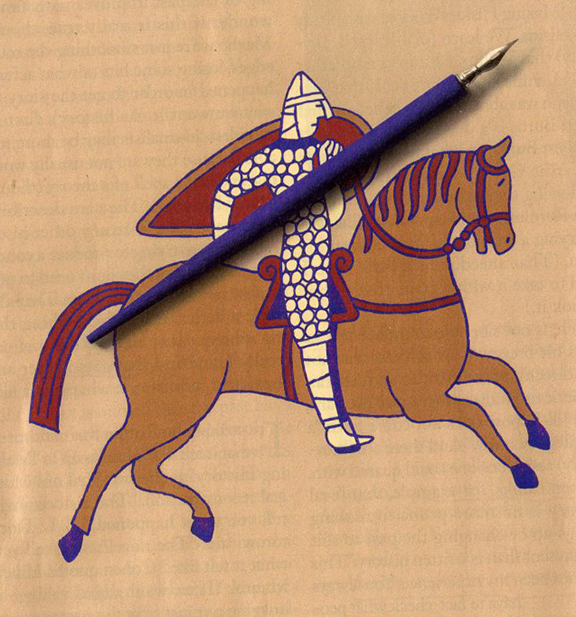April 17, 2022
A long time ago in a land far away I was the president of Luther League. What does that have to do with this Easter Sunday? It means I am conflicted, just like our history.
Daily Scratchboard Whip Out:
"The Supplicant"
Here is a popular quote that gets bandied about on Social Media a lot these days: "History is not there for you to like or dislike. It is there for you to learn from it. And if it offends you, even better. Because then you are less likely to repeat it. It's not yours to erase. It belongs to all of us."
This presumes history is a finite, solid thing, written in stone, as it were. But is that even true?
Just The Facts, Ma'am
Turns out, history is not a science, it's merely storytelling with facts. And, even those facts are prone to change because, if history has taught me anything, it's that nothing changes more than the past.
Case in point: There was a Civil War general who saved the United States at the Battle of Gettysburg. Three times he thwarted a Confederate cavalry charge that tipped the scales of battle in favor of the Union. This same war hero later died fighting for his country and a monument marks the spot. Today, his adversaries hold the higher ground and the brave soldier is now viewed as a genocidal, psychopath. Go tell George Armstrong Custer what part of history is not yours to erase, or change.
The irony is, both the pro-Custer and anti-Custer versions of history use the same set of facts, just looking at them from the opposite direction. In the current, popular phase, we get the Native American point of view. Thanks to books, primarily, "Bury My Heart at Wounded Knee," and, specifically, "Custer Died For Your Sins" the narrative has been spun out in a different direction. And the problem for history is, both accounts are about half right.
History is like myth in pre-modern culture. It's the way we explain ourselves to ourselves. Louis Menand wrote that, referencing Levi-Strauss, the philosopher not the denim maker.
We are all trying to make sense of the past. But in the end we all try to emphasize the facts that serve our prejudices.
When The Pen Is Mightier Than The Sword
As the story goes, a certain historian was arrested during the Hungarian revolution and he was asked if he was carrying a weapon and he allegedly handed over his pen. That's what makes this illustration so genius.
"There is no truth, there is no history, there is only the way the story is told."
—Richard Avedon


No comments:
Post a Comment
Post your comments